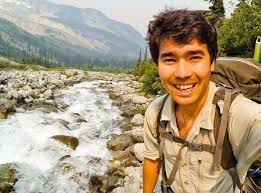Missionaries in Today’s World
- Jesse Lopez

- Nov 19, 2020
- 3 min read
Updated: Oct 13, 2021
by Jesse Lopez
Missionary - an individual sent on a religious conquest or "mission" promoting Christianity in a fcountryoreign .
The word "mission" originated in 1598 when the "Society of Jesus," known as the Jesuits, sent its first to teach the gospel to those living in sin. Besides promoting the ministry, religious
missionaries also educated the people of sin. They taught them reading, writing, social justice, hygiene,
healthcare, and economic development. Their teachings were often not appreciated because many of
these missions ended violently, with both non-Christian indigenous peoples' and missionaries' deaths.
You'd think the Christian missionaries of today would have learned from their fallen or from John Allen
Chau, who passed in November of 2018, but I assure you they have not stopped.
Mr. Chau embarked on a mission trip to North Sentinel, a long off-limits, very isolated island in the
Indian Ocean. According to the New York Times, "North Sentinel Island is home to one of the last
undiluted hunter-gatherer societies, a rugged, Manhattan-size island where a few dozen people live
trapped in time and total isolation." It's a sacred space kept alone to preserve tradition and culture.
Reports state that visitors to the island have disappeared after making contact with the people of this
land. India's government is protecting the island, its people, and any potential visitors by forbidding
access. This prohibition didn't stop Mr. Chau. He felt it was his mission to spread the word of his God to
North Sentinel's indigenous community.
Mr. Chau understood his trip's risks and levied an eleven-day self-imposed quarantine before contacting
the natives at North Sentinel Island. John Allen Chau also received vaccinations to protect himself, but
those vaccines wouldn't save the natives from the foreign germs that Mr. Chau and other intruders
could be carrying. Imagine how many people Mr. Chau came in contact with as he traveled a few
thousand miles through airports and planes. Now think about all those germs and viruses heading to this
land of new potential hosts.
As of March 2020, the Coronavirus began running rampant through populations across the globe. A
group of evangelical Christians called Ethnos360, formerly New Tribes Mission, set their sights on Brazil's
indigenous communities. Even without Covid-19, indigenous groups are susceptible to illnesses like
measles and the flu, which missionaries could be carrying. Without modern medical facilities and
antibodies developed in the West, an otherwise small-scale illness can wipe out an entire population of
people and their culture due to unlawful missionary visitation.
Not only can missionaries wipe out indigenous communities with infectious diseases, but they also
threaten the indigenous untouched culture and traditions by attempting to re-frame their belief
systems. The indigenous locals ofter receive bribes in the form of essential modern tools. Gifting these
tools with the indigenous people places a God-like trust in these missionaries, making it easier for them
to sway the indigenous' beliefs in their favor. This creates a need and demand for the goods these
missionaries offer. Now a consumer-merchant relationship exists.
It's a tale as old as time. In 1955, a few evangelical Christian missionaries from America set their sights
on the Huaorani people located in the Amazon region of Ecuador. They are a group known for violent
acts against their people and outsiders. Still, the missionaries insisted on making contact with the
previously uncontacted group, and they began making offerings of gifts. All five missionaries died from
spear attacks. Despite these traumatic events, family members of the slain missionaries returned to
Ecuador to live among the Huaorani people, eventually converting many to Christianity, including some
warriors responsible for their loved ones' deaths. Following these missionary efforts, the Huaorani
people learned more about the outside world and modernized many of their customs.
Missionaries going to foreign lands are often simply fulfilling their white savior complex. The
communities they attempt to convert risk infectious diseases and lose their beliefs, ancestry, and
lineage. We need to respect people's views and traditions. With the lack of understanding and cultural
differences, it's pretty safe to say that you shouldn't go to an off-limits indigenous community if you did
not receive an invitation, even if your God told you to go.








Comments